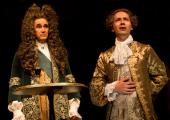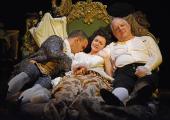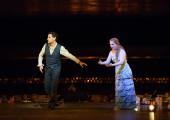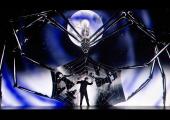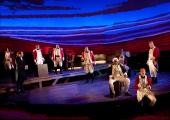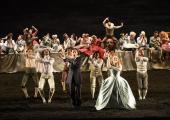Belcea String Quartet, Wigmore Hall

Passionate Bartók, but misplaced bravura in Beethoven and Haydn
To keep a string quartet on the road for 20 years requires patience, devotion and staying power. Therefore the Wigmore Hall's participation in the celebrations of the 20th anniversary of the Belcea Quartet, which is being marked in several European concert halls, is fitting testimony to the achievements of these players. Last night's concert was the first of their London series.

